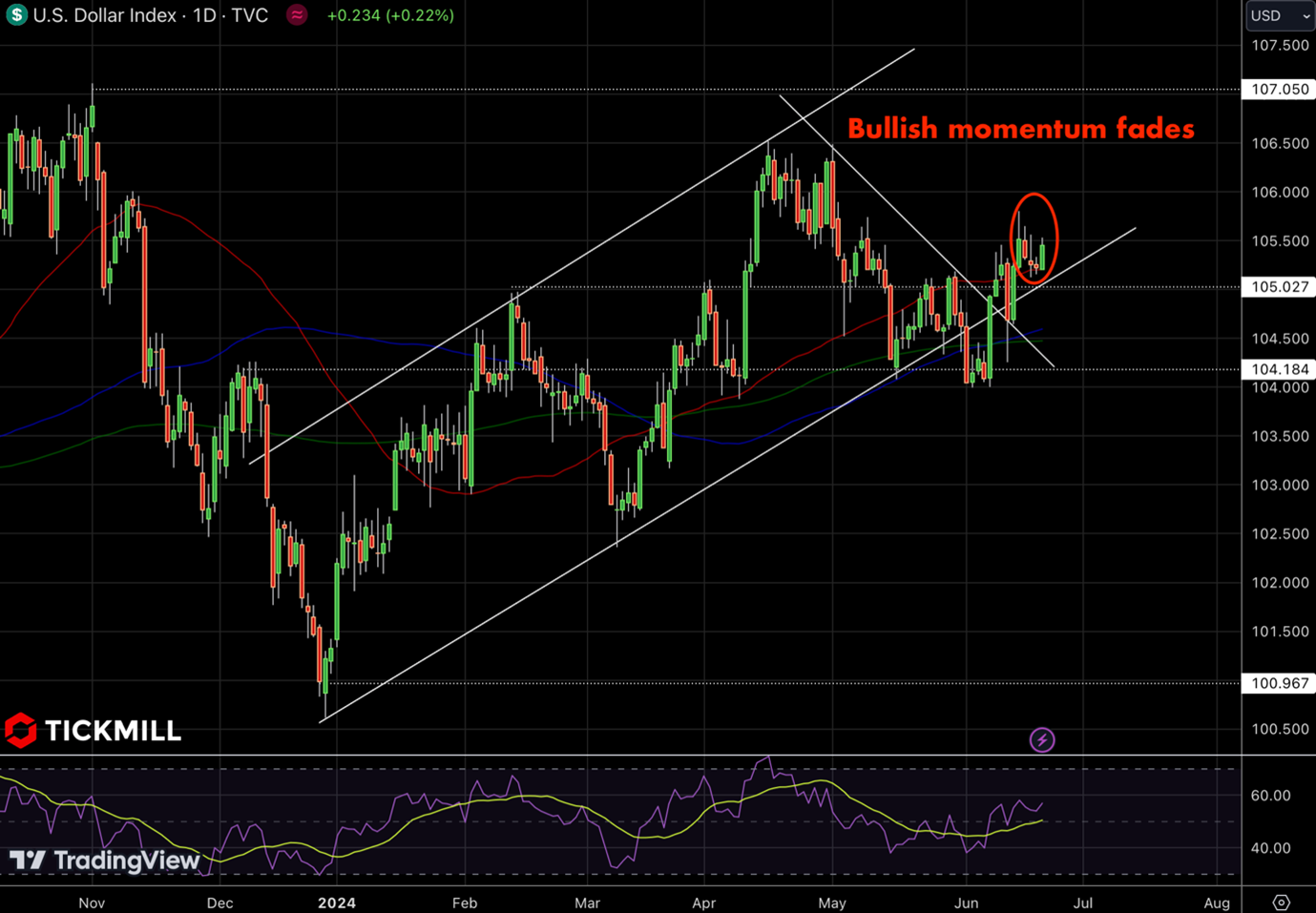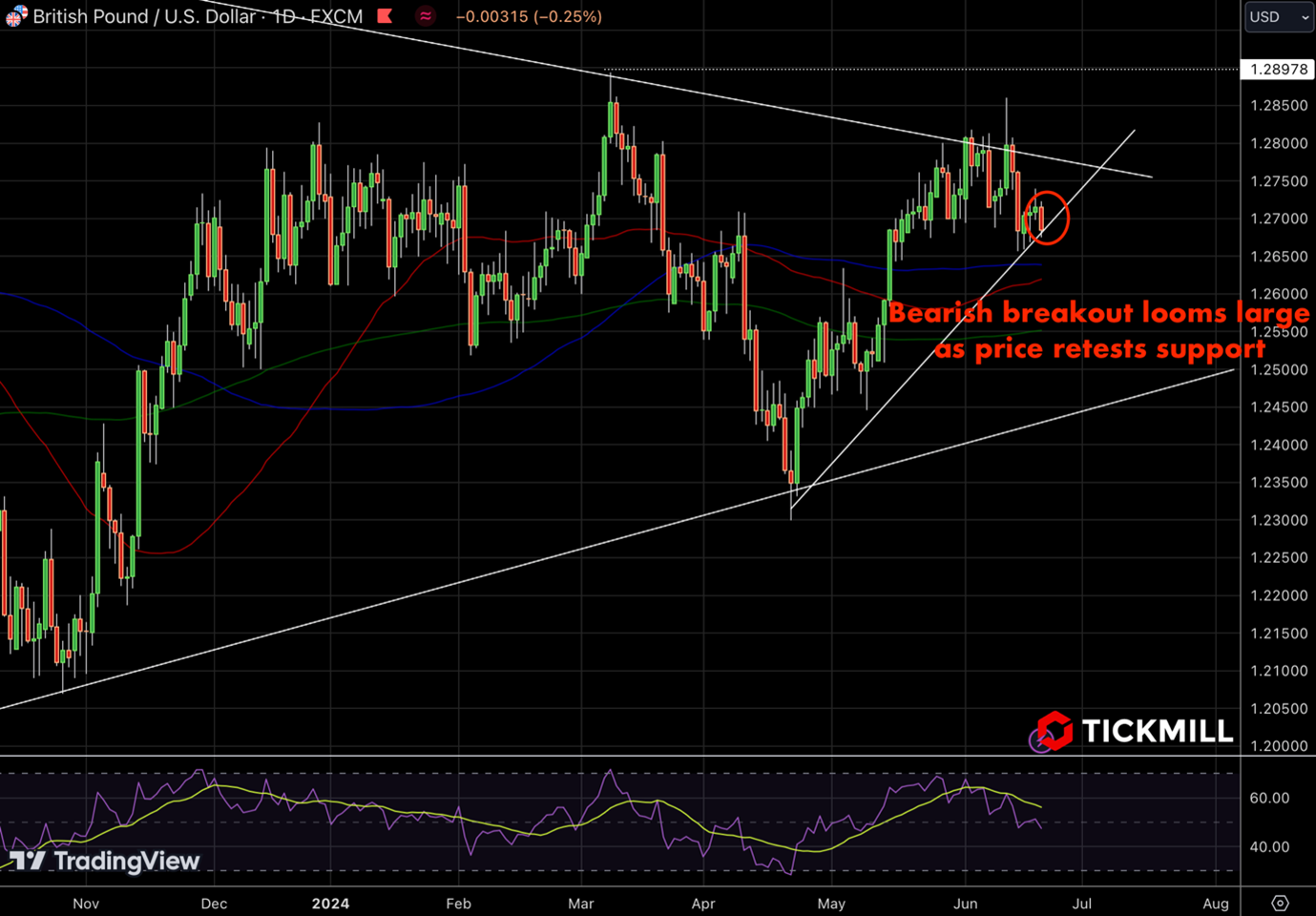USD Falters Amid Disappointing Data and the BoE's Steady Stance

The greenback's earlier bullish momentum from the Asian session fizzled out as softer-than-expected jobless claims data and disappointing US housing statistics took their toll. The USD's performance left much to be desired, particularly with an unexpected rise in continuing claims, which had been projected to fall.

On the economic data front in the US, the focus is now on upcoming statements from Federal Reserve officials. However, markets seem weary of the persistent hawkish rhetoric. With little new to add, it appears the Fed's hawkish narrative has reached saturation.
May's housing sector data painted a bleak picture:
- Building Permits: Missed estimates, falling from 1.44 million to 1.386 million.
- Housing Starts: Also disappointed, dropping from 1.352 million to 1.277 million, against optimistic forecasts.
The labor market didn't fare much better:
- Initial Jobless Claims: Slightly improved from a revised 243,000 to 238,000.
Adding to the gloom, the Philadelphia Fed Manufacturing Survey for June came in at 1.3, missing the consensus of 5 and down from 4.5 in the previous month.
Despite the dour data, equities showed resilience, recovering from a negative Asian session. European markets held their gains, and US futures were up nearly 0.50% ahead of the opening bell. Meanwhile, interest rate futures indicated a nearly 60% probability of a 25 basis point rate cut in September, with roughly a 34% chance of a rate pause.
Across the pond, the British Pound continued its decline following the Bank of England's policy decision. The BoE kept its interest rate steady at 5.25%, in line with market expectations. The decision saw a 7-2 vote, mirroring the previous meeting, with two members favoring a cut:

The accompanying statement described the decision as "finely balanced," hinting at a potential rate cut in August if inflation risks appear to be receding. Despite the UK's CPI inflation aligning with the BoE's 2.0% target in May, persistent inflation in other areas keeps policymakers cautious about cutting rates too soon.
BoE Governor Andrew Bailey underscored the uncertainty, noting that a rate cut couldn't be ruled out or guaranteed at this stage. This cautious stance aligns with market consensus, which doesn't anticipate a rate cut until August.
Disclaimer: The material provided is for information purposes only and should not be considered as investment advice. The views, information, or opinions expressed in the text belong solely to the author, and not to the author’s employer, organization, committee or other group or individual or company.
Past performance is not indicative of future results.
High Risk Warning: CFDs are complex instruments and come with a high risk of losing money rapidly due to leverage. 73% and 72% of retail investor accounts lose money when trading CFDs with Tickmill UK Ltd and Tickmill Europe Ltd respectively. You should consider whether you understand how CFDs work and whether you can afford to take the high risk of losing your money.
Futures and Options: Trading futures and options on margin carries a high degree of risk and may result in losses exceeding your initial investment. These products are not suitable for all investors. Ensure you fully understand the risks and take appropriate care to manage your risk.